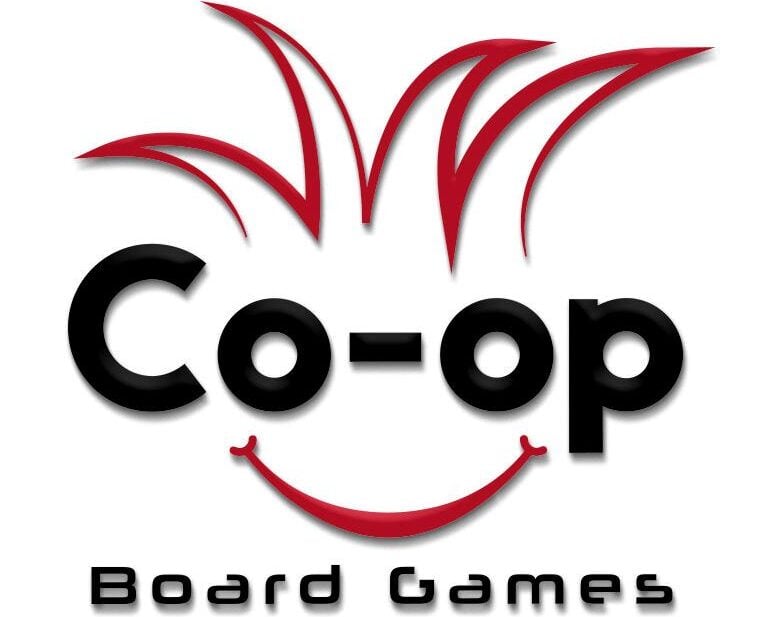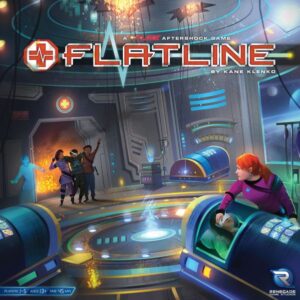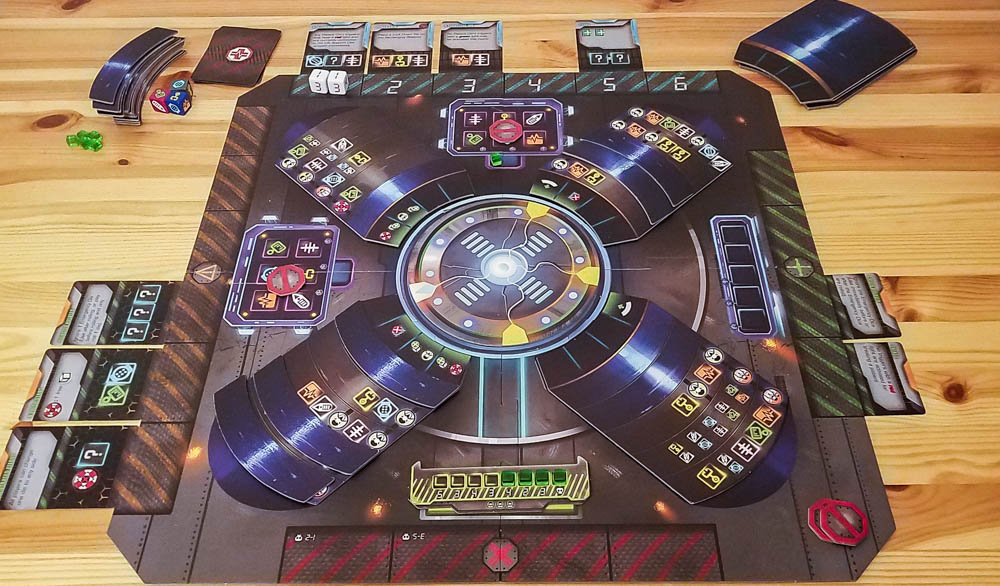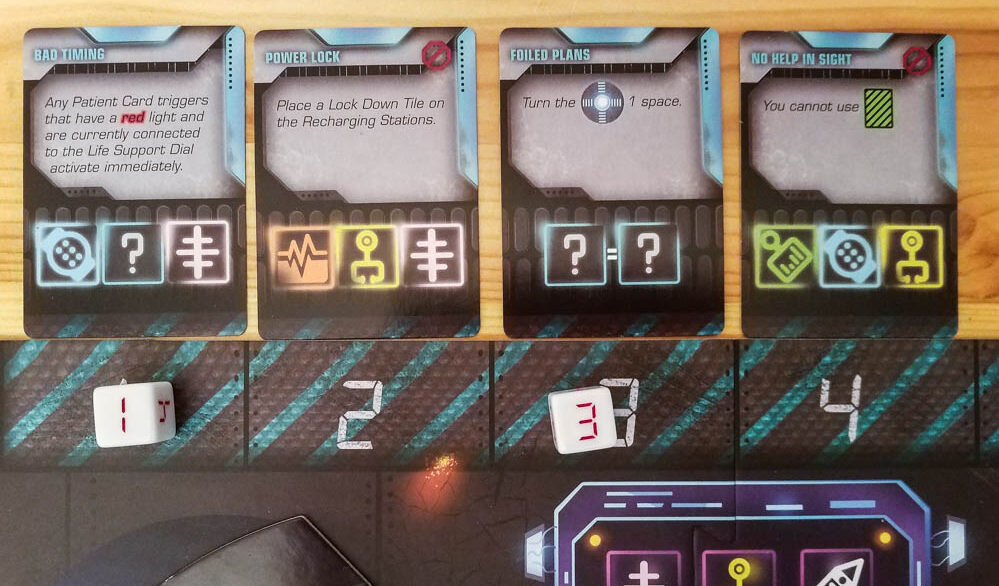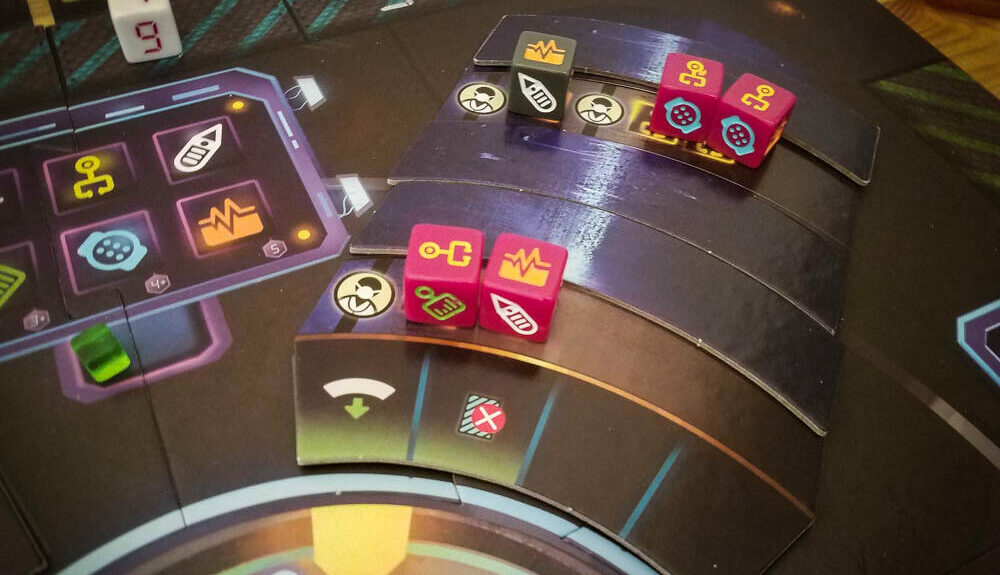Flatline Review
Year: 2017 | Players: 1-5 | Minutes: 25+ | Ages: 10+
This Flatline review was made after playing the game five times.
What is Flatline?
Flatline is a real-time dice game in which you play as medics on a space ship who are trying to save injured crew members. Flatline is a sequel to FUSE, though the games play quite differently besides both being real-time dice games.
Flatline was designed by Kane Klenko (FUSE, Flip Ships) and is published by Renegade Game Studios.
Flatline Gameplay
In Flatline, you’ll be trying to save patients on your ship while also dealing with any emergencies that pop up. You’ll do this by using your dice to cover the symbols shown on the patient and emergency cards.
Your ship loses power at the beginning of each round, causing a number of emergencies to happen. The blue emergency cards are placed in the Emergency area of the board and can be activated when you roll the emergency dice. The orange emergency cards are placed in the Stat area and need to be dealt with quicker since they can cause you to lose the game. Cleared blue emergencies are removed from the game and cleared orange emergencies can give your team benefits in future rounds.
Each patient card has a number of rows that show you the symbols you’ll need to roll to save them. Some rows require dice from one player, some require dice from two or more players, while others require dice from all players. You have to completely fill a row with the correct symbols by the end of the round to be able to cover it with a Cleared Line tile. You’ll save the patient if all of their rows have been cleared.
During the Countdown step of each round, you’ll have one minute to place your dice on patient cards, emergency cards, and recharging stations (these stations give you more power/rounds). You can also use the reroll track to attempt to get the symbols you need by sacrificing dice.
After the minute is up, you’ll check for cleared emergencies and patients. Any orange emergencies that weren’t cleared go to the red section of the board; if three cards are ever in this area, you immediately lose (four cards in a solo or two-player game). When you save a patient, you’ll check the Life Support dial in the middle of the board to see what, if any, effect takes place (some are good, some are bad). You’ll then add new patient cards to the empty spots.
To win the game, you need to save all of the patients. You’ll lose if the ship runs out of power or if too many orange emergencies make it to that red section of the board.
That is just a rough overview of the rules. Check out the Flatline rulebook at BGG for more info on how to play the game.
Pros and Cons
Pros
- What makes Flatline different than other real-time games I’ve played is that each round is just one minute of real-time action. The rounds are intense, but they’re quick enough that you don’t get mentally or physically fatigued like you can in other real-time games.
- This is a very tough game to beat, but it’s not impossible. You have to take the time to figure out a strategy with your teammates before each round, and then you need to adjust after you see the dice results. It’s very satisfying when you pull off a win because you know it couldn’t have happened without some great teamwork.
- Those emergency cards give you plenty to think about. You pretty much always want to save some dice for the orange emergencies, but those blue ones are important too since you want to lower the chances of having too many negative effects activating in future rounds.
- There is a lot of replay value here. You never know what emergency cards are going to pop up and the dice are going to force you to come up with different ways of tackling the puzzle.
- I like the look of the board when it’s all set up. The Life Support dial and the patient cards really pop.
- Setup is surprisingly quick. All you have to do is put the board together, shuffle the emergency cards, put the first four patient cards on the board, and give each player their dice.
Cons
- The dice can definitely hate you in this game and there aren’t many ways to mitigate your bad rolls. Even the reroll station isn’t great since you need to give up a die to use it and you could still end up with bad results.
- I wish the patients had names or some other way to differentiate them. That would make the planning phase go a bit smoother and it would make it easier to communicate when you’re placing dice.
- No where in the rulebook does it say what each symbol represents, which is strange to me. Again, that would have made it easier to communicate with your teammates and it would have made the theme come through a bit more.
Final Thoughts
Flatline isn’t one my group’s favorite real-time games, but everyone has enjoyed it. At first we thought it was nearly impossible to beat, but as we started saving more patients we saw that there were some ways to adjust our strategies to get better results each round. That first win felt great! Still, we enjoy Kane Klenko’s other real-time game, FUSE, a bit more than this one since the theme shines in that game and it scratches the real-time itch while only taking about a quarter of the time to play.
I’ve had a chance to play Flatline at the two, three, and four-player counts, and I’d say the game works best at two and three. There isn’t as much chaos at lower player counts, but the tension level is still quite high. I do want to see how crazy the five-player game gets, though.
If you’re a fan of cooperative real-time games, I would give this one a try since it is very challenging and it has a different feel to it than other real-time games. Also, some people might prefer Flatline over other real-time games because it’s a bit less stressful thanks to its short one-minute rounds.
- Update: Flatline was added to our Best Budget Board Games page!
Flatline Links
BGG | Amazon
Thanks for taking the time to read our Flatline review!
Be sure to also take a look at our Best Cooperative Board Games list and other rankings.
To stay updated on all things co-op board games and card games, follow us on Facebook and X.
